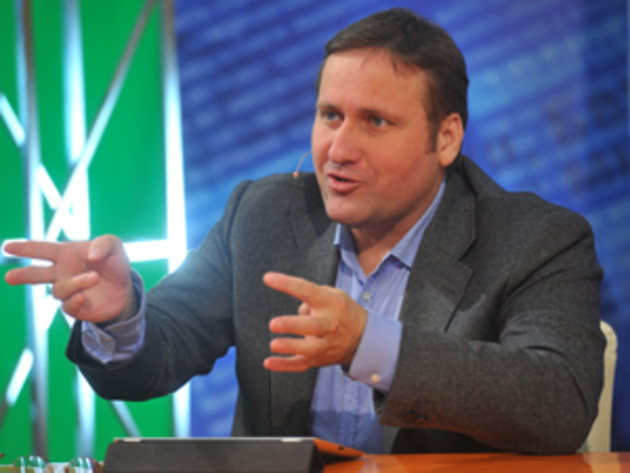“We should stop subsidizing clans that hide the people's funds”

Author: VKExperts continue summing up 2011. Yevgeny Minchenko, Director General of the International Institute for Political Expertise, expressed his point of view on events in the region in an interview with VK.Mincheko said that the key moment of 2011 is Russia’s recognition of elections in South Ossetia and Abkhazia: “The elections became an indicator of formation of democracy, and the appearance of some sort of civil society in Abkhazia and South Ossetia”.At the same time, Mincheko believes that “an adequate response to terrorism threat in the North Caucasus has not been delivered. This is an issue directly linked with the problem of redistribution of budget funds. The main problem lies in subsidizing authoritative clans hiding the population’s funds. Such policy provokes opposition attitude of the population towards the government. It has been the main problem of the Russian authorities this year. I fear least political turbulence should prevent it from acting, it is indeed a risky problem”.The expert also commented on the situation in Georgia where “crisis of Saakashvili’s authority is clear. However, he urged the significance of Bidzina Ivanishvili’s opposition project not to be overestimated”.Regarding Russian membership in the WTO, Minchenko noted that it would kill part of the national car industry, but would improve competition in banking and insurance.One of the main achievements of the post-Soviet space, according to Minchenko, is formation of the Customs Union: “There is a chance for formation of adequate and efficient structures on the level of the Eurasian Commission, but there are also risks of domestic political crises in participants of the agreement. For example, domestic political peace of Kazakhstan is based on personal efforts of Nursulatn Nazarbayev. Belarus faces Russian economic expansion, but Russia may suffer from further development of domestic political turbulence itself, especially in 2013-2014 due to passing of a set of unpopular social reforms, such as modernization of healthcare, possible changes of the retirement age, passing of accumulative pensions to the Pension Fund and increase of taxes for real estate. 2013 and 2014 may be the years with a chance of domestic political crisis in the Russian Federation and it cannot affect positions of neighbor states”.Commenting on global developments of 2012, Minchenko supposes that there will be tensions all over the world, with their peak at 2013 and 2014. The expert noted that there is real risk of intervention in Syria and Iran and a crisis in Turkmenistan in 2012. The only thing that prevents Western states from interfering into Syrian affairs is the grand Syrian army, while intervention in Iran is a nuclear risk for neighbor states. The course of events in Iran and Syria will directly affect the Caucasus, Minchenko believes. Russia would try to prevent a military strike in Iran and Syria. Russia has the only Mediterranean naval base in Syria, while Iran is the only Russian ally in the region. However, the expert noted that the Libyan example shows that Russia would not get involved in a military conflict in the region because it lacks the force potential.The expert believes that there is a probability that Vladimir Putin would lose the presidential polls to Gennady Zyuganov in the second round, although his chances of victory still seem high. Due to the coming turbulence, Russia has two solutions, Minchenko reckons. According to the first solution, Russia should concentrate on domestic problems and have minimal reaction to foreign impulses. The second solution will mean a contrary policy, with concentration on foreign policy and creation of an image of the enemy, which Russia would try to use to cope with domestic problems. In Minchenko’s opinion, the first solution has better chances of realization.Minchenko pointed out the dragging of the Nagorno-Karabakh peace process: “On the background of escalation of world conflicts, the Nagorno-Karabakh problem may develop into an open confrontation”. If Putin comes to power, the policy around Nagorno-Karabakh will most likely see no changes, Mincheko believes. The most likely course of events, according to the expert, is a short-term escalation of conflict and its hushing to the current level. Minchenko emphasized that Russian priorities on the Nagorno-Karabakh conflict are less obvious after Azerbaijan’s signing of an agreement on building the Trans-Caspian Gas Pipeline bypassing Russia with Turkmenistan and Iran.Minchenko forecasts that Russia would soon lift the veto on nationalistic slogans, escalating conflicts with ethnic groups. A negative nationalistic mood, the expert believes, is a result of destructive policy of the federal government supporting authoritative clans in the North Caucasus.
4125 views





